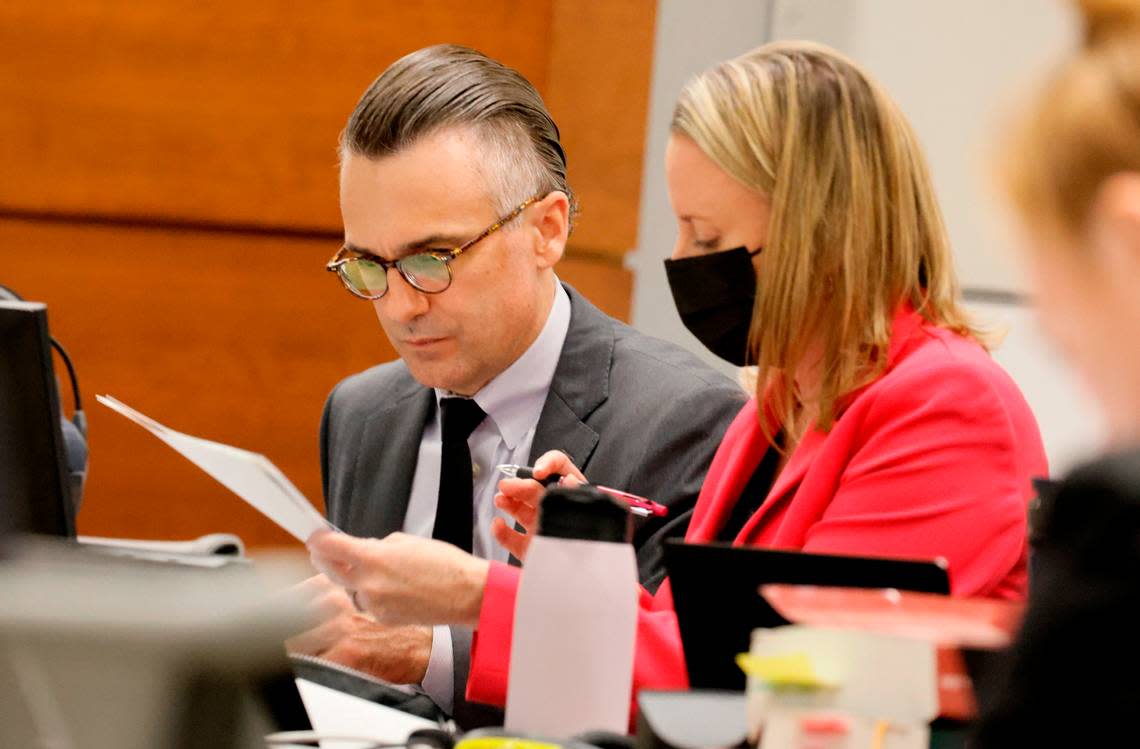What to expect as Parkland shooting trial continues: school tour; defense makes its case
The sentencing trial of Parkland school shooter Nikolas Cruz is in its second week, and is expected to last several more months.
Cruz, 23, has already pleaded guilty to 17 counts of first-degree murder, and 17 counts of attempted murder for the Feb. 14, 2018, mass shooting at Marjory Stoneman Douglas High. The 12-person jury will ultimately decide whether Cruz should be executed for the 17 murders, or sentenced to life in a Florida prison.
Here’s what to expect as the trial moves forward before Broward Circuit Judge Elizabeth Scherer:
▪ The state will continue calling witnesses and presenting evidence. That could include more testimony from forensic pathologists who performed autopsies on the slain students. Jurors could also view cellphone videos Cruz made prior to the shooting, promising he was going to be the next school shooter. Prosecutors could also play Cruz’s confession to a police homicide detective.
How a driven prosecutor is building the case to execute Parkland killer: ‘Brick by brick.’
▪ Jurors will likely be taken to tour the freshman building on the sprawling Parkland campus, where Cruz mowed down victims on the first and third floors. The crime scene has been preserved for over four years in anticipation of it being viewed by a jury.

The Broward Public Defender’s Office had argued that a jury visit to the bloodstained and bullet-riddled building was unnecessary and would only “inflame” the juror’s emotions. Prosecutors have said the tour was necessary because “there is no one video, photograph, poster, film, anything, that captures what the ... building is.”
Judge Scherer agreed with prosecutors. The exact timing of the visit remains unclear. In an order posted this week, Scherer said she would visit the site the day before the actual jury tour to “ensure the scene is ready and in appropriate condition for the view.”
▪ Lawyers still need to argue over what expert testimony and evidence should be allowed before the jury, once the defense starts its case. The proceeding — known as a Daubert hearing — is scheduled for the week of Aug. 15.
Broward prosecutors are asking that certain software tools used to analyze Cruz’s brain data be excluded from the trial. One example: the QEEG, which analyzes data from electroencephalogram tests, known as EEGs, that record electrical energy in the brain through sensors attached to the head. The software translates the results into a digital image of a patient’s brain to help analyze brain-wave frequencies — and compare it against a database of other normal and abnormal patterns.
Courtroom scenes from Parkland school shooting trial: Anger and tears
But prosecutors say the tools are improperly being used to diagnose Cruz as having development problems associated with being exposure to alcohol while in the womb, and mild traumatic brain injury. Defense attorneys say prosecutors have a “misunderstanding of the science and methodology involved in diagnosing” what is known as “Neurobehavioral Disorder Associated with Prenatal Alcohol Exposure.”
▪ Cruz’s defense team will then begin mounting its case, arguing that the “mitigators” or circumstances of his life should spare him the death penalty. That could include factors such as his tumultuous family life, a long history of mental-health disorders, brain damage caused by his biological mother’s drug and alcohol use, and claims that he was bullied and sexually abused by a “trusted peer.”
Prosecutors will then be allowed to present a “rebuttal” case, to counter the defense’s case.
▪ By October or November, jurors will vote as to whether Cruz should be sentenced to die for each of the 17 murder victims, with the judge officially delivering the sentence. Under Florida law, the jurors must be unanimous in meting out the death sentence. To sentence him to death, the jury must also decide that the state’s “aggravating” factors outweigh the defense’s mitigating factors.
Among those aggravating factors prosecutors hope to prove: that Cruz acted in a “heinous, atrocious and cruel” manner, he was calculated and premeditated in carrying out the crime, and knowingly creating a “great risk of death to many persons.”
